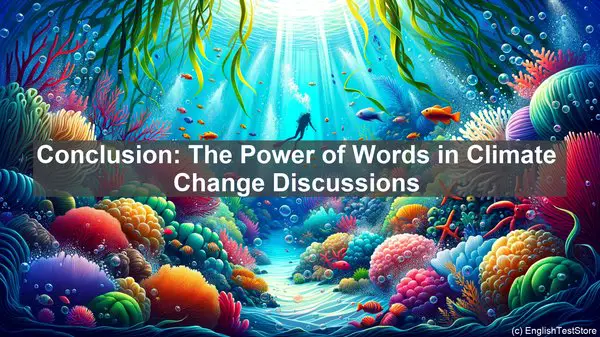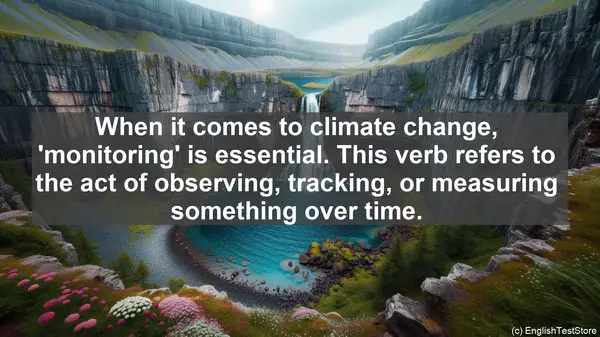Introduction: The Importance of Climate Change Vocabulary
As we delve deeper into the topic of climate change, it becomes crucial to have a strong grasp of the English vocabulary associated with it. Today, we’ll be focusing on the top 10 verbs that are frequently used when discussing climate change initiatives. By the end of this lesson, you’ll be equipped with the linguistic tools to engage in meaningful conversations about environmental issues.
1. Mitigate: Taking Action to Reduce the Impact
The verb ‘mitigate’ refers to the act of lessening or minimizing the impact of something. In the context of climate change, it often implies taking proactive measures to reduce greenhouse gas emissions or implementing strategies that promote sustainability. For instance, governments may introduce policies to mitigate the effects of climate change, while individuals can contribute by adopting energy-efficient practices.
2. Adapt: Adjusting to Changing Conditions
As the climate continues to evolve, the need to ‘adapt’ becomes increasingly important. This verb signifies the process of adjusting to new or changing circumstances. When discussing climate change, it often relates to finding ways to cope with the effects of global warming. For example, coastal communities may need to adapt to rising sea levels by implementing flood protection measures.
3. Advocate: Being a Voice for Change
To ‘advocate’ means to actively support or promote a particular cause. When it comes to climate change, advocacy plays a crucial role. Advocates are individuals or groups who strive to raise awareness about environmental issues, push for policy changes, or encourage sustainable practices. Greta Thunberg, for instance, has become a prominent advocate for climate action.
4. Collaborate: Working Together for Solutions
Climate change is a global challenge that requires collective efforts. ‘Collaborate’ refers to the act of working together with others, often across different sectors or countries, to achieve a common goal. Collaboration can involve sharing knowledge, resources, or even jointly implementing projects. International agreements like the Paris Agreement are examples of collaborative efforts.
5. Promote: Encouraging Widespread Adoption
To ‘promote’ means to actively encourage or support the use, acceptance, or implementation of something. In the context of climate change, promoting sustainable practices or technologies is crucial. This can involve raising awareness, providing incentives, or highlighting the benefits of environmentally friendly alternatives. Governments often have campaigns to promote renewable energy, for instance.
6. Monitor: Keeping a Watchful Eye
When it comes to climate change, ‘monitoring’ is essential. This verb refers to the act of observing, tracking, or measuring something over time. Monitoring can involve various aspects, such as tracking temperature changes, monitoring air quality, or assessing the health of ecosystems. The data collected through monitoring helps scientists and policymakers make informed decisions.
7. Reduce: Minimizing Consumption and Waste
The verb ‘reduce’ is all about minimizing. In the context of climate change, it often relates to reducing consumption, waste, or emissions. This can be achieved through various means, such as using energy-efficient appliances, practicing recycling, or opting for public transportation. Small individual actions, when combined, can have a significant impact.
8. Innovate: Finding Creative Solutions
In the face of climate change, ‘innovation’ is crucial. This verb signifies the act of introducing new ideas, methods, or technologies. Innovation can range from developing renewable energy sources to creating more sustainable materials. It often involves thinking outside the box and finding novel approaches to address environmental challenges.

9. Educate: Spreading Knowledge and Awareness
To ‘educate’ means to impart knowledge or information. In the context of climate change, education is vital. By educating others about the causes, impacts, and potential solutions, individuals can contribute to a more informed and engaged society. This can be done through formal channels, such as schools, or through informal means, like social media.
10. Engage: Actively Participating in the Conversation
The verb ‘engage’ goes beyond passive involvement. It implies active participation, interaction, or involvement. When it comes to climate change, engaging means not only being aware but also taking action. Engaging can involve anything from attending climate rallies to participating in local sustainability initiatives.

